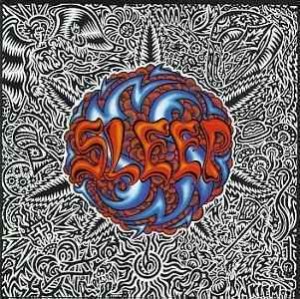 There’s a parallel between fans of metal and fans of Terry Gilliam’s work. There’s the sense of imagination and adventure, and loyalty, and the sense of belonging to something exclusive, and the sense of anticipation whenever one of our heroes creates something new.
There’s a parallel between fans of metal and fans of Terry Gilliam’s work. There’s the sense of imagination and adventure, and loyalty, and the sense of belonging to something exclusive, and the sense of anticipation whenever one of our heroes creates something new.
Thus is it with metal and thus is it also with Terry Gilliam, visionary director of Time Bandits, Twelve Monkeys and more.
Amazingly, I was the only person in the cinema to see this film (I felt like Charlton Heston in The Omega Man watching Woodstock in the deserted cinema). But I looked on it as a private screening, a unique experience.
Before the main feature I got to see the trailer for a film that will fill cinemas, the latest identikit tripe of a comic strip adaptation. I’d seen it all before. The audience have become like the people in John Carpenter’s They Live, and if that’s the case, Terry Gilliam is the sunglasses needed to peer into what is truly reality.
I won’t spoil the film for you; films should be seen with a sense of wonder and innocence. But in a nutshell, The Zero Theorem tells the tale of Qohen Leth (Christoph Waltz in a career-best performance), a mathematician attempting to solve The Zero Theorem.
Visually it’s a film that will reward constant re-watching, Brazil is an obvious reference point, but with the film’s strong theme of social isolation via life led through computers it’s very much ‘somewhere in the 21st century,’ rather than ‘somewhere in the 20th century.’ Melanie Thierry gives a strong performance as Bainsley, the woman who may be the chance Qohen has to save himself from his isolation. The theme that ‘no man is an island’ runs through The Zero Theorem and I think one of the most chilling things about this film is that it will acquire more resonance in the future, not less.
David Thewlis channels his inner-Python and gives a suitably maniac performance, and there are some fine turns from Tilda Swinton and an almost unrecognisable Matt Damon (looking something like 80s icon Max Headroom!).
Finally, I love the theme that it’s not the destination but the journey, that in our crazy materialistic world, maybe we should start stopping to smell the coffee. (The last band you saw play, how many people were filming the band on their phones rather than getting lost in the moment?) It’s also a comment on the nature of things like Facebook and Twitter where people don’t believe they’re real or have worth unless other people (usually strangers) can see them or their words. Is there a void in people that they need to have filled from without rather than within?
I’ll leave the final words to Terry Gilliam himself (after all, he made it!): “I do understand people’s needs and desires to be somebody, but it’s almost at the expense of experiencing things now. In a sense, that’s what Qohen is. He’s so wrapped up in the meaning of his life that he doesn’t experience anything. Until life comes at him.”

